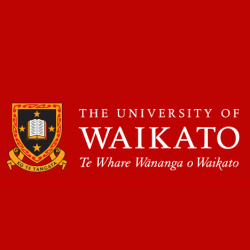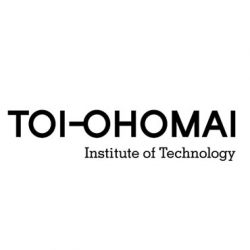
Portfolio Pointers: Preparing and presenting high quality teaching portfolios
Status
Project Details
A project, completed in 2011, to develop a set of guidelines for creating teaching portfolios for the Tertiary Teaching Excellence Awards or for other similar purposes. A collaboration of The University of Waikato and Bay of Plenty Polytechnic.
Aims:
The main aims of the project were to:
- work collaboratively with a group of successful award winners and their supporters to develop a guide to preparing a portfolio for submission to the Tertiary Teaching Excellence Awards
- produce a set of guidelines to simplify the portfolio development process for nominees and those who advise and support them
- prompt people to consider ways of examining their practice, so they can select and articulate material that records their teaching narrative in the best way possible.
Methodology:
Previous Award winners develop the key components of the guidelines for the portfolio development process.
Team

Dorothy Spiller
Project Leader
The University of Waikato
Pip Bruce-Ferguson
The University of Waikato
Kelly Pender
Bay of Plenty Polytechnic
Dr Judith Honeyfield
Bay of Plenty Polytechnic
Te Kahautu Maxwell
The University of Waikato
Dr. Alison Campbell
The University of WaikatoStatus
Funding
$10,000.00 (excl GST)
Key Findings
The key findings from the project include:
- The portfolio guidelines include key pointers to ‘getting started’, collecting evidence, interrogating practice, editing, and protecting the unique ‘voice’ of the nominee and their student body.
- The guidelines consist of general principles and practical examples from both successful academic developers and award recipients and some examples from award-winning portfolios to illustrate good practice.
- Teaching portfolios have been used in the education sector for many years and for multiple purposes. Compiling a portfolio is often a significant part of professional development programmes and is frequently required for career advancement purposes or tertiary teaching position applications. Portfolios are also used internationally in teaching awards selection processes and this is now the expectation for all those nominated for Ako Aotearoa Tertiary Teaching Excellence Awards in New Zealand.
- The benefits of the portfolio process and the creation of portfolios which highlight exemplary practice across the tertiary sector extend far beyond applauding the work of individual teachers. The Ako Aotearoa Tertiary Teaching Excellence Awards celebrate teaching and teachers across the tertiary sector. The portfolios that are produced and disseminated within the institutions of the project team provide a conversational forum for all tertiary teachers to examine and reflect on their own practice and to build networks and find synergies with other teachers in their discipline.
- The portfolio “forum” is a teaching conversational space with relevance for teachers across the tertiary teaching sector. These portfolios and the thought processes and teaching practices that they document become professional development resources that can inspire and change tertiary teaching practices long after the applause has settled. In the long term, these benefits will be passed on to students and contribute to an enhanced learning experience for them, a goal shared by all who work in the tertiary sector.
- The Ako Aotearoa Tertiary Teaching Excellence Awards now recognise that many Māori tertiary teachers are called on to provide vision, leadership and teaching in a wide range of contexts outside the traditional classroom. The introduction of the new category of a Kaupapa Māori Teaching Excellence Award by Ako Aotearoa in 2010 provides the opportunity to acknowledge and celebrate the rich and unique contribution that many Māori tertiary teachers make to the community, Iwi and to the nurturing of Te Reo and Tikanga.
- The many benefits that may accrue to tertiary teachers from the production of teaching portfolios may not be immediately evident to the individual teacher faced with compiling a portfolio, frequently to meet a tight deadline. Our experience has been that for some teachers, juggling multiple work pressures, the prospect of compiling a portfolio seems too daunting and leads them to turn down a nomination.
Key Recommendations
The criteria that have been identified and discussed in the report provide the essential guidelines for documenting the teaching narrative. It is important for teachers to adhere to these requirements, while narrating their unique teaching history and practice. Within these guidelines, there are some key messages that need to be sustained throughout the portfolio. These include:
Quality of students’ learning experiences | The students and the quality of their learning experiences need to be at the forefront of the discussion and explanations. For example, if talking about the benefits of a particular assessment task, it needs to provide examples of the kind of learning that students produced in this task.
Learning about teaching and engagement | Evidence of an ongoing commitment to learning about teaching and engagement in a process of continuous improvement. It is important to document personal achievements and the students’ learning successes, but equally it is imperative for teachers to show that they are actively engaged in continuously improving their own practice.
Personal values and beliefs | The teacher’s idea of the optimum teaching and learning environment and views of the inter-relationship between teachers and learners.
Knowledge of learners | Knowledge and understanding of learners and the learning process and ideas about discipline-specific and generic learning outcomes.
Leadership | Leadership in both local and wider communities. These examples may be strictly discipline-related, or, they may also include broader considerations.
Commitment to professional development | Commitment to ongoing personal professional development – linked to the teacher’s sphere of teaching and research.
A research report prepared by Dorothy Spiller, Pip Bruce-Ferguson, Kelly Pender, Judith Honeyfield, Te Kahautu Maxwell and Alison Campbell.
(PDF, 1.29 MB, 23-pages).
- 15 March 2011